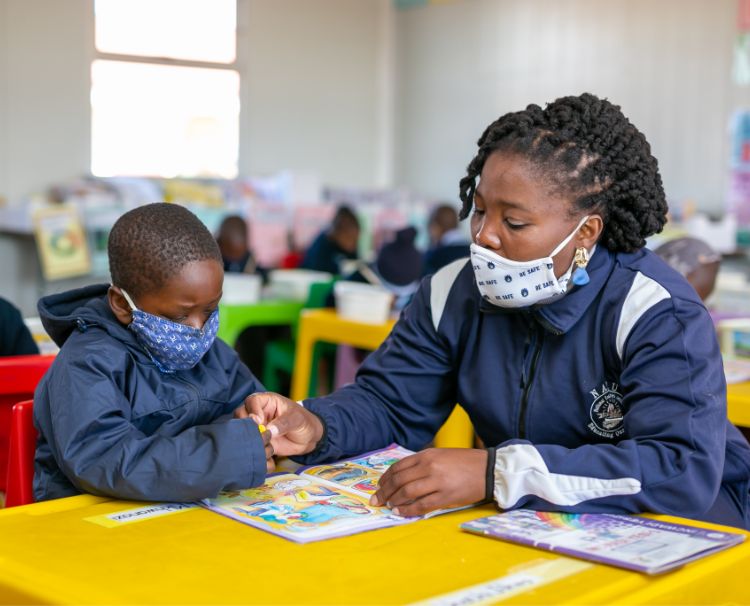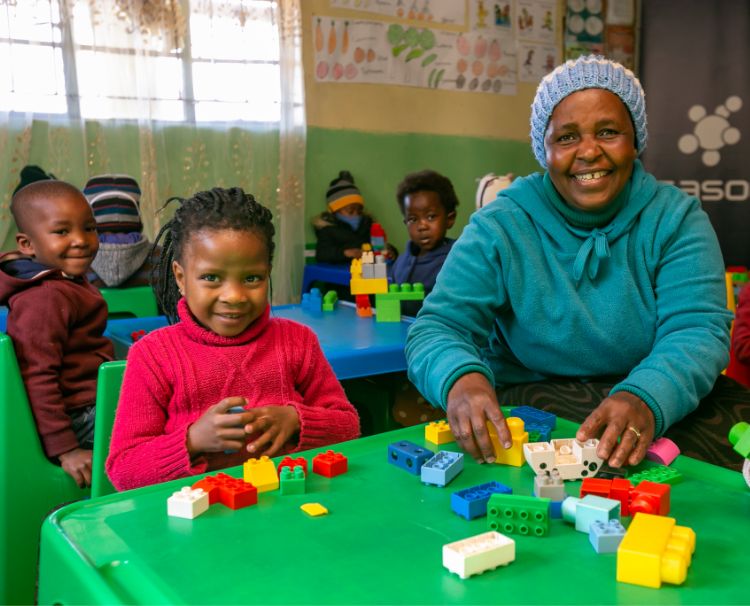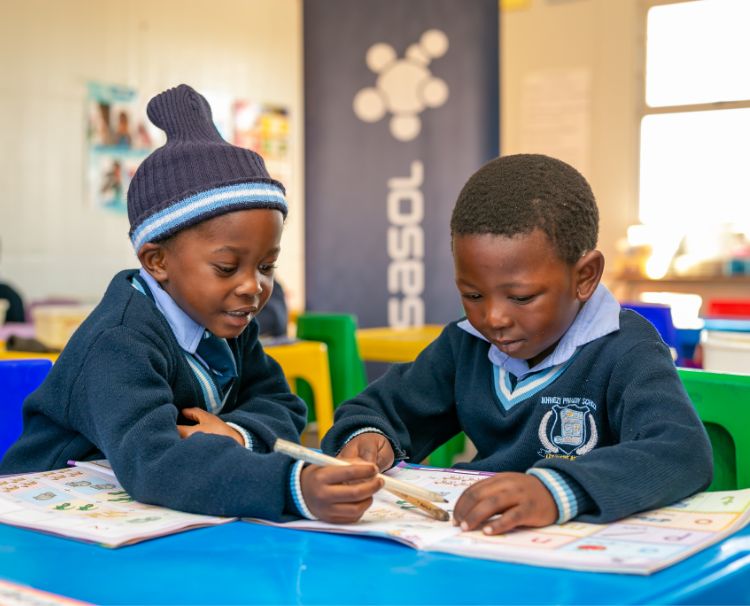We support almost 80 ECD/E centres in the communities in which we operate.
We have trained 80 centre managers, assisting them with compliance and centre registration. Crucially, this has helped them to access government financial support.
We have trained and provided onsite support to more than 115 practitioners.
About 3 200 children at the centres we support have access to at least one nutritious meal a day.
We supplied indoor and outdoor learning resources to ensure that the children we support are sufficiently stimulated and that all faculties are appropriately developed.
More than 5 000 children in Secunda and Ekandustria have access to toy libraries.
The importance of Early Childhood Development is summarised by Unicef, which in 2021 stated: “In the first few years of life, more than one million neural connections are formed each second – a pace never repeated again.
Unfortunately, millions of children around the world miss out on this stage because of several disadvantages that they face. Sasol’s investment in Early Childhood Development (ECD) and Education stems from our understanding of the significance of the early years in a child’s life and that a stimulating environment is pivotal for a child’s holistic growth.
Over the years, Sasol has partnered with social entrepreneurs in our fenceline communities to ensure that children in these areas grow up happy, well-nourished, and fully prepared for formal learning.
Our key partners in ECD in fenceline communities are women and men who have dedicated their lives to the service of children. Many of them started their careers in ECD by opening up their homes to care for a few children. Often, they have done this with no formal training, no proper facilities for early learning, and no funds to support their initiatives.
Sasol has stepped in for several years to help these partners expand upon their knowledge, skills and networks in the ECD space. There has been significant growth over the last few years with regard to this. The onset of COVID-19 and lockdown protocols has challenged this sector immensely many of whom failed to re-open. This necessitated Sasol to intervene in various initiatives including donation of sanitiser to centres and refocusing training by our partners to mobilise parents to support their children’s ECD milestones at home.
There’s also been a slow but steady return of children to the respective ECD centres in our communities. There is no doubt that Sasol along with all of our partners have to step up to ensure the success of this generation, ensuring that they are not deprived of opportunities to learn, play and be safe.
(https://www.unicef.org/early-childhood-development: 02 Sept 2021)
“We decided to create workbooks with materials so children could learn the curriculum by doing exercises. Large-scale printing was done by the Department of Basic Education. SaIF further put books online, so anyone with access to a computer can practise the exercises as many times as they like, until they get them right. We estimate the Internet reach is about ten million learners.”
The SaIF Chairperson
Dr Yvonne Muthien


